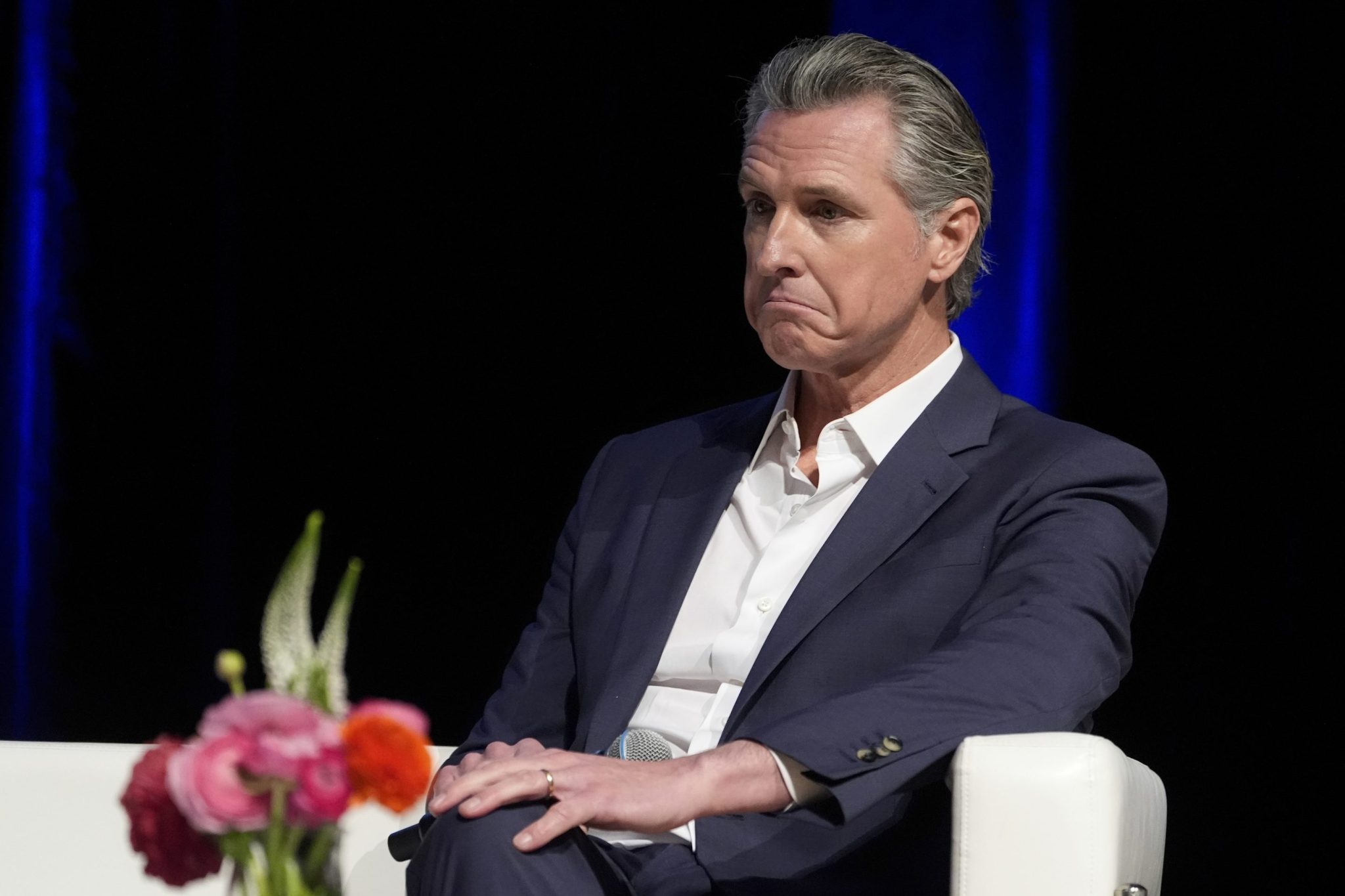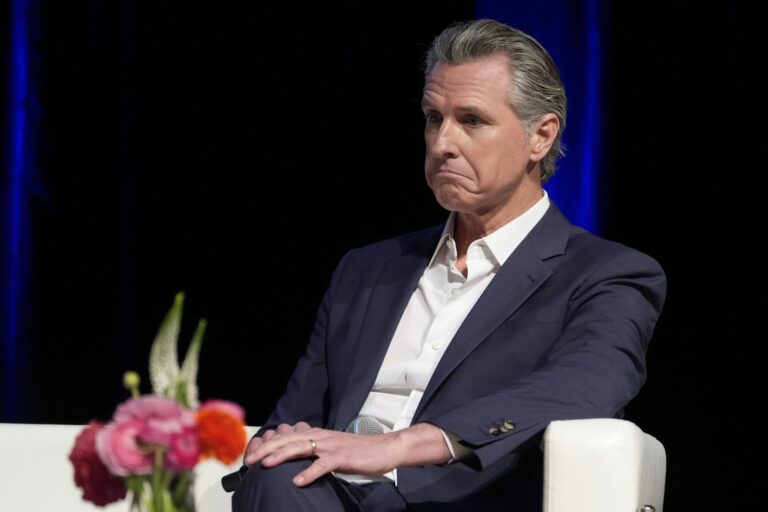Tech News
I’ve seen companies fail for want of honest feedback. Here’s how to build a culture of candor

“I’m waiting for you to retire so we can get a divorce.”
It was not the answer the chief financial officer of one of America’s largest public companies expected when he tried a workplace candor exercise on his wife. He had written her a dinner invitation suggesting they have a conversation about everything they never spoke about.
“Let’s talk about the things we need to say but we may not be talking about today,” he wrote. “How is our partnership? How am I supporting you? What can I do better? I promise, I truly want to hear how you are thinking and feeling.”
The honesty of her reply—and the candor of the discussion that followed—saved their marriage.
Waiting for dramatic moments to give feedback misses daily opportunities to help each other grow. Feedback should not be saved for annual reviews at work or family interventions at home. It is a gift we can give every day to those we care about.
Most of us would rather avoid such truths. We let important things go unsaid in our relationships, at home, and at work. We watch colleagues struggle rather than offer perspectives that could help them grow. We let frustrations with loved ones simmer until they boil over. Half of Americans say no one in their personal lives tells them hard truths—in the workplace, that figure rises to 71%.
This kind of feedback requires rewiring how we think about criticism. Most of us are conditioned from childhood to hear feedback as a directive; our parents weren’t offering suggestions when they said, “Don’t touch that!” or “Sit up straight!” But feedback can be a gift of perspective, one that the recipient is free to accept, modify, or decline. Like research data that helps companies make better decisions, the feedback we receive is simply datapoints that helps us see our areas we might work on and consider new possibilities.
I learned this lesson the hard way. Growing up as a gay kid in blue-collar Catholic Pittsburgh in the 1970s left me with deep insecurities and an obsession with success at any cost. My defensive walls and inability to give or receive honest feedback contributed to failed relationships, both personal and professional. I was the partner who couldn’t hear criticism without deflecting, the leader who avoided difficult conversations until it was too late.
But I’ve also seen what’s possible when people commit to everyday candor. At a cosmetics company I work with, two senior executives demonstrate this daily. The chief financial officer noticed her colleague, a marketing star, could benefit from deeper financial knowledge to advance her career. Rather than stay in her lane, she actively brought her peer into earnings calls and investor meetings. Meanwhile, her colleague coached the CFO on storytelling and presentation skills, and their mutual investment in each other’s growth helped drive their company’s success.
I saw this with my foster son Daniel. Traditional parent-child directives got nowhere. But one day, I tried a different approach: “Daniel, I’m curious. Do you eat that way at school in front of the girl you’re always talking about?” Offering observations tied to something he cared about often sparked curiosity instead of defensiveness.
The same approach works in any relationship. “I have some thoughts that might help you be even more effective. Would you like to hear them? It’s totally your call what you do with this input—it’s just my perspective, one data point for you to consider alongside others.” When we frame feedback this way, we remove the pressure of demanded change. More importantly, when we make offering these perspectives an everyday practice rather than saving them for formal conversations, we create an ongoing dialogue that strengthens relationships and helps everyone grow.
Simple practices can help build this muscle. In Guatemala, we’ve helped to teach children in the poorest communities to be each other’s coaches, transforming educational outcomes through daily peer feedback. In workplaces, I encourage teams to regularly offer thoughts on each other’s ideas, competencies (like leadership), skills (like use of technology), and performance (holding each other accountable for delivery). Even families can benefit from regular check-ins about what’s working and what is not.
One powerful practice is what I call the “Open 360″—I have used this practice countless times in a team setting and recently among a family office that included the grand matriarch of the family, the parents, and their three girls and their spouses. Each person takes turns receiving two kinds of feedback from everyone else: “What I most admire about you is…” followed by “Because I care about your success, what I might suggest is…” The structure makes it easier to give and receive candid input, but it’s just a starting point for making feedback part of daily family life.
The alternative to honest feedback—conflict avoidance—is far worse than momentary discomfort. I’ve watched relationships wither from withheld truths.I’ve seen businesses fail because people wouldn’t speak up.In an era of polarization and rapid change, our ability to give and receive honest feedback may determine not just our professional success, but the health of our most important relationships.
Would you be surprised if you invited more honest feedback from those closest to you? The truth might save more than a marriage, it could transform how we connect with everyone in our lives. The key is remembering that feedback is simply information freely given and freely received, best shared not in dramatic moments but in the small, everyday interactions that build stronger relationships.
The opinions expressed in Fortune.com commentary pieces are solely the views of their authors and do not necessarily reflect the opinions and beliefs of Fortune.
This story was originally featured on Fortune.com
Tech News
Americans see growing risk they’ll get turned down for loans

A growing share of US consumers say they’re not seeking loans because they expect to be refused amid tight credit conditions, according to data from the Federal Reserve Bank of New York.
The share of discouraged borrowers, defined as respondents who said they needed credit but didn’t apply because they didn’t expect to get approved, climbed to 8.5% in the New York Fed’s latest Survey of Consumer Expectations. That’s the highest level since the study began in 2013.
The perceived likelihood of being rejected increased across different forms of credit, from cards to secured loans to buy homes and cars. Roughly one-third of auto loan applicants expected to get turned down, the highest share since the start of the series, while nearly half of all respondents in the February survey said it’ll be harder to get credit in a year’s time.
The data adds to a picture of increasingly fragile household finances for many Americans, as a cooling job market slows wage gains while high borrowing costs are making bills harder to pay. Delinquency rates remain low by pre-pandemic standards but they’ve been edging higher in most categories, and lenders are turning cautious.
More than four in 10 US homeowners who sought to refinance their mortgages had their applications rejected, according to the February survey, quadruple the share in October 2023.
With mortgage lending rates still much higher than a couple of years ago, many people seeking a refi are likely trying to tap equity accumulated during the recent housing boom in order to meet other debt costs or expenses, rather than to reduce their monthly payments. Inability to do so could put some under pressure to sell their homes.
Meanwhile, the share of consumers in the New York Fed survey who said they could come up with $2,000 in the event of an unexpected need declined to 63%, a new series low.
This story was originally featured on Fortune.com
Tech News
Jet maker Bombardier warns Canada that F-35 review may backfire

The head of Canadian jet manufacturer Bombardier Inc. raised concerns about Canada’s decision to review a contract to buy dozens of F-35 fighter jets from Lockheed Martin Corp., the country’s latest response to the trade war with the US.
“Canceling the F-35s might be a good idea, but we need to think about it,” Bombardier Chief Executive Officer Eric Martel told a business audience in Montreal. “We have contracts with the Pentagon. Will there be reciprocity there?”
Bombardier has invested in recent years in its defense unit, which converts jets into military aircraft. It has two contracts with the US government, one for communication aircraft and another for surveillance planes.
New Canadian Prime Minister Mark Carney ordered a review of the F-35 purchase agreement, a C$19 billion ($13.3 billion) deal for 88 jets that was finalized in 2023. The deal hasn’t been scrapped, but the government needs to “make sure that the contract in its current form is in the best interests of Canadians and the Canadian Armed Forces,” a defense ministry spokesperson said.
Earlier this month, President Donald Trump put 25% tariffs on imports on Canadian goods that don’t fall under the US–Mexico–Canada Agreement, and added 25% import taxes to aluminum and steel products. He has repeatedly said he believes Canada should be the 51st US state — a recent poll showed that 90% of Canadians disagree — and members of his administration have taken the Canadian government to task for its low level of military spending.
“Trump isn’t wrong on everything,” Martel said. “We’ve been hiding behind our big brother for a while, and we’re completely dependent on him militarily.”
In 2023, Canada finalized a deal to order as many as 16 military surveillance aircraft from Boeing Co. as part of an investment worth more than $7 billion, rejecting a competing Bombardier proposal.
The jet maker’s shares have dropped 18% since Trump was elected on Nov. 5, but are still up about 50% over the past year.
In February, Bombardier set aside its financial outlook for the year because of risk and uncertainty about tariffs. “Not providing guidance is the most responsible thing for us to do,” Martel said at the time. About 60% of Bombardier’s business comes from the US, and its planes are currently built and shipped under the rules of the US-Mexico-Canada Agreement.
Bombardier has a complicated supply chain that includes manufacturing in US and Mexico with more than 2,800 US-based suppliers across 47 states. US-made parts and systems make up a significant proportion of the cost of its aircraft.
The Global 7500, the firm’s flagship jet, has wings made in Texas, avionics from Iowa and motors made in Indiana. More than half of its building costs are tied to US manufacturing, but the assembly and finishing are done in Canada, which makes the jet subject to tariffs.
Two-thirds of Canada’s aerospace industry exports depend on the US market, Martel said.
This story was originally featured on Fortune.com
Tech News
Gavin Newsom is welcoming prominent conservatives on his new podcast, but critics say it’s risky to align himself ‘in a slightly unpredictable middle’

LOS ANGELES (AP) — As a wounded Democratic Party struggles to regroup, California Gov. Gavin Newsom is holding mostly chummy conversations with prominent conservatives on a new podcast he’s touting as a way for the party to grapple with the MAGA movement’s popularity.
In doing so, he appears intent on showing he is more than a progressive warrior. But he has stunned some members of his own party by agreeing with his guests on issues such as restricting transgender women and girls in sports. Newsom called dismantling police departments “lunacy” and remained silent when Steve Bannon, an architect of President Donald Trump’s 2016 campaign, falsely said Trump won the 2020 presidential election.
The programs provide a fresh lens on a liberal governor and potential 2028 presidential candidate who not long ago was enlisted as a chief surrogate for President Joe Biden’s campaign. Ahead of the 2022 midterms, he chastised national Democrats for being too passive in defending abortion rights and same-sex marriage, an issue he championed two decades ago as mayor of San Francisco.
Newsom said his choice of podcast guests reflects his interest in knowing more about how Republicans organized in the last election, when Trump swept every battleground state and Republicans locked up majorities in the House and Senate.
“I think we all agreed after the last election that it’s important for Democrats to explore new and unique ways of talking to people,” he added in an email to supporters.
Newsom’s party criticizes his guests
After spotlighting Bannon, conservative radio personality Michael Savage and Turning Point USA founder Charlie Kirk, Newsom will quickly diversify his lineup: His next guest is Minnesota Gov. Tim Walz, last year’s Democratic vice presidential nominee. But some Democrats say the governor, who is widely viewed as having presidential ambitions, is selling out Democratic values in favor of his own political aspirations.
Aimee Allison, the founder and president of She the People, a national organizing hub for electing women of color, said Newsom is betraying California and “showing his weakness and naked ambition.” Allison was among Democrats who helped Newsom defeat a 2021 recall attempt.
“We need a governor that will defend California’s values, support vulnerable children, LGBTQ+ people, Black people, women, and everyone else who’s in the line (of) fire of the Trump administration. Instead he is making the worst moves possible in a time of rising fascism. He’s trying to remake himself to be acceptable to MAGA,” Allison wrote in an email, referring to supporters of Trump’s “Make America Great Again” movement.
California Assembly member Chris Ward and state Sen. Carolina Menjivar, who lead the state’s LGBTQ+ legislative caucus, said they were “profoundly sickened” by Newsom’s statement on transgender athletes. And Kentucky Gov. Andy Beshear, another potential 2028 candidate, said of Bannon, “I don’t think we should give him oxygen on any platform — ever, anywhere.”
Finding a new audience
Podcasts have become an increasingly important venue in politics, and as Newsom considers a national campaign he has been praised by some for venturing into unfamiliar territory.
Democratic consultant Bill Burton, who was national press secretary for former President Barack Obama’s 2008 campaign, credited Newsom with trying to reach voters who might not engage with traditional media.
“I think there are going to be a lot of people this alienates in the short term,” Burton said. But, he added, Democrats “have to take a lot of big swings.”
The governor — who called Trump a threat to American democracy throughout last year’s campaign — has been trying to navigate a tenuous relationship with the White House as the state recovers from the devastating Los Angeles wildfires in January. He’s requested $40 billion in federal aid.
Newsom, while progressive, has never been locked into one ideological position: He’s broken at times with more liberal factions in the Legislature. His shift this time may be to head off the kind of criticism Republicans have aimed at former Vice President Kamala Harris, also of California, or edge toward positions more closely in line with public opinion. According to AP VoteCast, 55% of voters nationwide in the 2024 election said support for transgender rights in government and society has gone too far.
During the podcast episodes released so far, Newsom has been mostly affable and agreeable, though he’s challenged his guests at times. This is not the tart-tongued Newsom who appeared in a 2023 televised debate with Republican Florida Gov. Ron DeSantis, whom he described as weak and pathetic, or who called the state legislature into special session last year to attempt to safeguard the state’s progressive policies under a Trump administration.
In an age of rigid partisanship, talking with the other side is “so rarely a part of public discourse it seems like either bravery or lunacy,” said Thad Kousser, a political science professor at the University of California, San Diego. “While there are clear risks, he is trying to align his national reputation … in a slightly unpredictable middle.”
This story was originally featured on Fortune.com
-

 Tech News3 months ago
Tech News3 months agoHow Costco’s formula for reaching uncertain consumers is pushing shares past $1,000 to all-time highs
-

 Tech News3 months ago
Tech News3 months agoLuigi Mangione hires top lawyer—whose husband is representing Sean ‘Diddy’ Combs
-

 Tech News3 months ago
Tech News3 months agoLego bricks have won over adults, growing its $10 billion toy market foothold—and there’s more to come
-
Tech News3 months ago
Quentin Tarantino thinks movies are still better than TV shows like Yellowstone
-

 Tech News3 months ago
Tech News3 months agoInside the FOMC: Boston Fed President Susan Collins on changing her mind, teamwork, and the alchemy behind the base rate
-

 Tech News3 months ago
Tech News3 months agoNancy Pelosi has hip replacement surgery at a US military hospital in Germany after falling at Battle of the Bulge ceremony
-

 Tech News3 months ago
Tech News3 months agoTrump and members of Congress want drones shot down while more are spotted near military facilities
-

 Tech News3 months ago
Tech News3 months agoHundreds of OpenAI’s current and ex-employees are about to get a huge payday by cashing out up to $10 million each in a private stock sale



